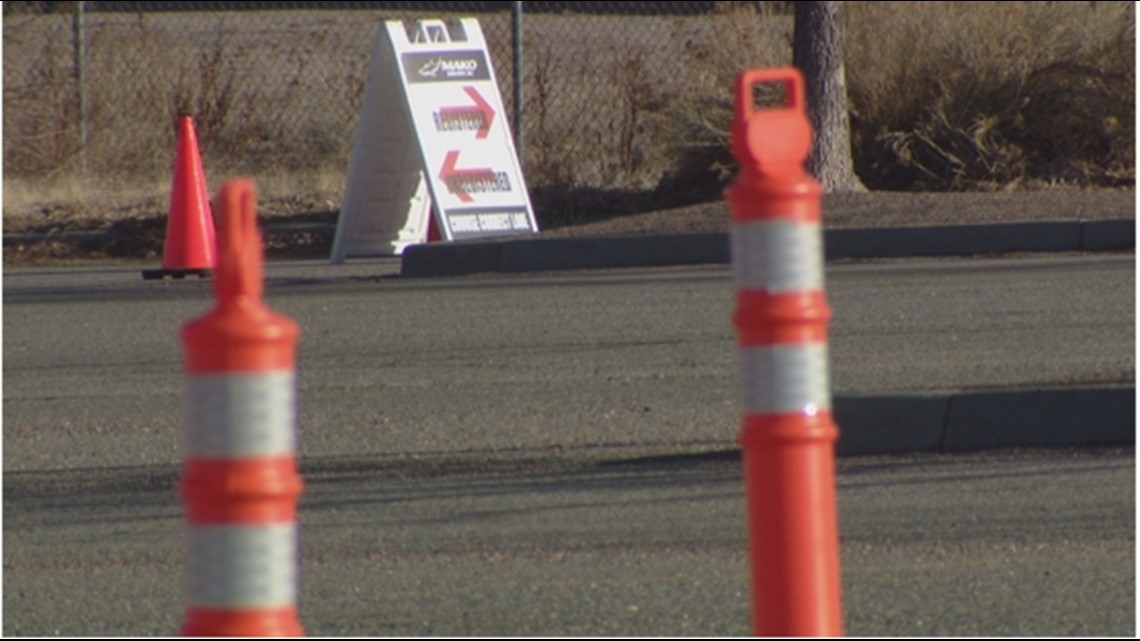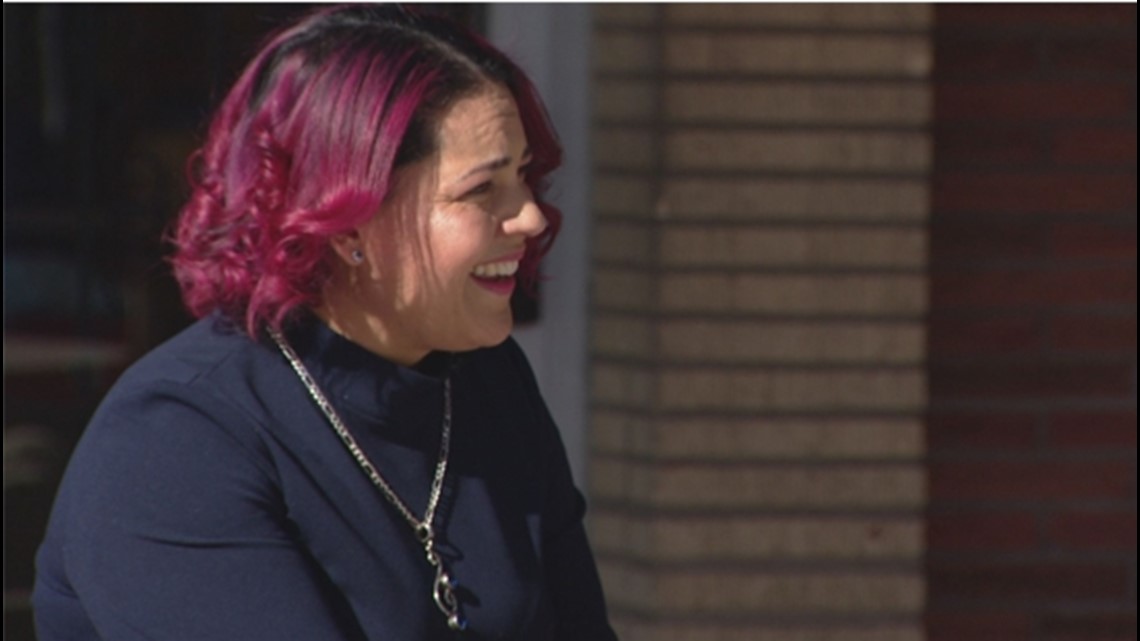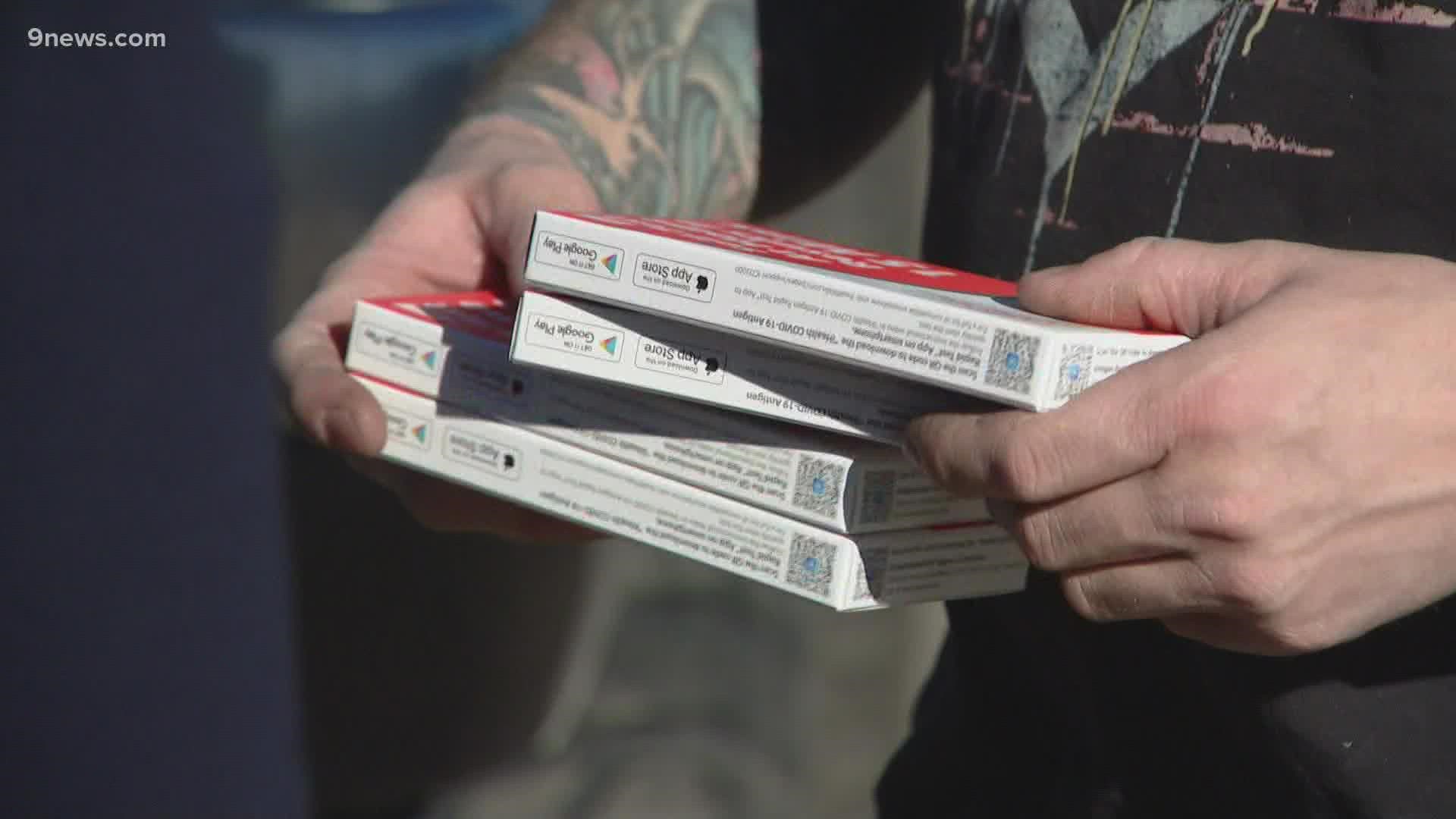COMMERCE CITY, Colo. — Maria Gonzalez walked to a few Commerce City businesses Tuesday to do what her organization, Adelante Community Development, works to do: provide access to resources for preventing COVID.
"We have to be very realistic that we're not all at the same level of coming back to normal," Gonzalez said.
Recently, her organization received a large shipment of at-home COVID-19 test kits to hand out to the public.
They've been doing so at the COVID-19 vaccination clinics they hold on a near-weekly basis at Mile High Flea Market. They're having another one this coming Sunday with around 100 doses of the vaccine to give.
"As long as they keep on coming, that means there's still a service need that we have to provide," Gonzalez said.
It's work they say they'll continue to do, despite the state transitioning from its community vaccination sites to offering COVID-19 vaccines at traditional healthcare settings like hospitals, clinics and pharmacies.


The Colorado Department of Public Health and Environment said it's part of the state's Roadmap to Moving Forward, and that "due to large-scale immunity and the availability of tools to mitigate the spread and severity of disease, we are shifting away from population-level strategies used to suppress transmission."
The state's mobile vaccination clinics will stay in operation at least through June 30.
If needed, the state said they could bring back the larger community sites within about a month.
"In addition, numbers at state-run community vaccination sites have dropped consistently over the last few weeks, signaling this is the right time to switch to traditional healthcare settings for vaccination -- similar to flu vaccine," a spokesperson for CDPHE said via email Tuesday.
Meanwhile, Gonzalez said they'll continue to try to raise the vaccination rates among Latinos in particular.
The state health department has helped continue Adelante Community Development's work by providing doses.
"The work that we're continuing to do it is in particular niches where the community has been needing us to be at, where they're not going to go into a big Ball Arena to go get vaccinated. We are literally meeting them at their community, at their place of comfort. You know, traditionally where the Latino community will be," Gonzalez said.


According to the latest data from Tri-County Health, 48% of Hispanic people are fully vaccinated against COVID-19 in Adams County, compared to 80% of white, non-Hispanic people.
On Tuesday, Gonzalez also talked about the need for equal access to resources extending towards economic opportunities for Latinos.
"I understand we all want to get back to a normal that we might have known before, but there's side effects of our economic struggles that we need to overcome," she said. "And what I would like to see is the opportunity for organizations like Adelante to be at the table with other stakeholders and to really identify best ways that we are going to support our community, our Latino community, to move forward, to make sure that they have what they need. Yes, testing, yes, vaccinations, but economic opportunities where they can really embrace that they are being supported and that they have the ability to have a better quality of life."
The community group also said it'll host clinics every Sunday this March and has already requested doses to host clinics two days a week through April and May.
Servicios De La Raza is also continuing to host vaccination clinics, and continuing to travel around the state.
RELATED: Despite drop in COVID-19 cases, groups continue to push for vaccinations among Latinos in Denver
SUGGESTED VIDEOS: COVID-19 Coronavirus

